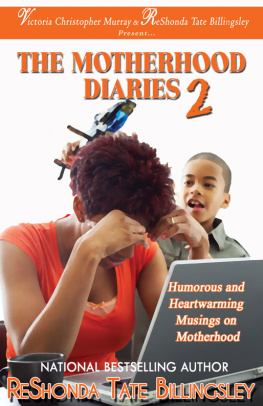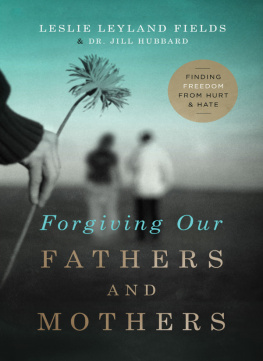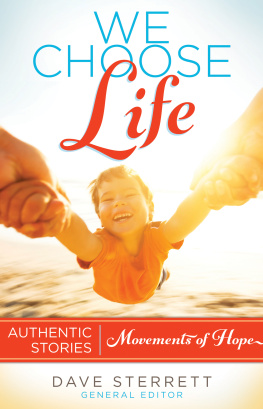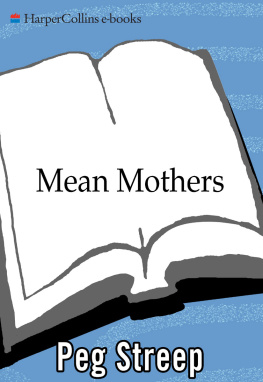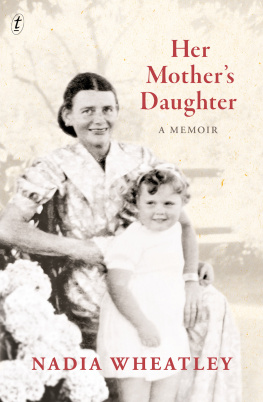The Evening News
Winner of
THE FLANNERY OCONNER AWARD
FOR SHORT FICTION
The Evening News
Stories by Tony Ardizzone

Paperback edition published in 2013 by
The University of Georgia Press
Athens, Georgia 30602
www.ugapress.org
1986 by Tony Ardizzone
All rights reserved
Set in Linotron 202 Times Roman
Printed digitally in the United States of America
The Library of Congress has cataloged the hardcover
edition of this book as follows:
Ardizzone, Tony.
The evening news : stories / by Tony Ardizzone.
161 p. ; 23 cm.
I. Title.
PS3551.R395E9 1986 813.54 86-1403
ISBN 0-8203-0860-9 (alk. paper)
Paperback ISBN-13: 978-0-8203-4461-4
ISBN-10: 0-8203-4461-3
ISBN for digital edition: 978-0-8203-4570-3
FOR DIANE KONDRAT
Acknowledgments
The author and the publisher gratefully acknowledge the magazines in which stories in this volume first appeared.
Beloit Fiction Journal: The Eyes of Children
Black Warrior Review: My Mothers Stories and My Fathers Laugh (under the title But You Can Call Me Thaddeus)
Carolina Quarterly: Idling
Epoch: The Evening News and Nonna
Memphis State Review: World Without End
The Minnesota Review: The Intersection
Quartet: The Walk-On
Seattle Review: The Transplant
The Texas Quarterly: The Daughter and the Tradesman
The author also wishes to thank the Old Dominion University Research Foundation for a summer fellowship that enabled him to complete work on this book.
Contents
The Evening News
My Mothers Stories
They were going to throw her away when she was a baby. The doctors said she was too tiny, too frail, that she wouldnt live. They performed the baptism right there in the sink between their pots of boiling water and their rows of shining instruments, chose who would be her godparents, used water straight from the tap. Her father, however, wouldnt hear one word of it. He didnt listen to their shell only die anyway and please give her to us and maybe we can experiment No, the childs father stood silently in the corner of the room, the back of one hand wiping his mouth and thick mustache, his blue eyes fixed on the black mud which caked his pants and boots.
Nein, he said, finally. Nein, die anyvay.
With this, my mother smiles. She enjoys imitating the mans thick accent. She enjoys the sounds, the images, the memory. Her brown eyes look past me into the past. She draws a quick breath, then continues.
You can well imagine the rest. How the farmer took his wife and poor sickly child back to his farm. How the child was nursed, coddled, fed cows milk, straight from the tops of the bucketsthe rich, frothy cream. How the child lived. If she hadnt, I wouldnt be here now in the corner of this room, my eyes fixed on her, my mother and her stories. For now the sounds and pictures are my sounds and pictures. Her memory, my memory.
I stand here, remembering. The family moved. To Chicago, the city by the Great Lake, the city of jobs, money, opportunity. Away from northwestern Ohios flat fields. The child grew. She is a young girl now, enrolled in school, Saint Teresas, virgin. Chicagos Near North Side. The 1930s. And she is out walking with her girlfriend, a dark Sicilian. Spring, late afternoon. My mother wears a small pink bow in her brown hair.
Then from across the black pavement of the school playground comes a lilting stream of foreign sound, language melodic, of the kind sung solemnly at High Mass. The Sicilian girl turns quickly, smiling. The voice is her older brothers, and he too is smiling as he stands inside the playground fence. My mother turns but does not smile. She is modest. Has been properly, strictly raised. Is the last of seven children and, therefore, the object of many scolding eyes and tongues. Her name is Mary.
Perhaps our Mary, being young, is somewhat frightened. The boy behind the high fence is older than she, is in high school, is finely muscled, dark, deeply tanned. Around his neck hang golden things glistening on a thin chain. He wears a sleeveless shirthis undershirt. Mary doesnt know whether to stay with her young friend or to continue walking. She stays, but she looks away from the boys dark eyes and gazes instead at the worn belt around his thin waist.
That was my parents first meeting. His name is Tony, as is mine. This is not a story she tells willingly, for she sees nothing special in it. All of the embellishments are mine. Ive had to drag the story out of her, nag her from room to room. Ma? Ask your father, she tells me. I ask my father. He looks up from his newspaper, then starts to smile. Hes in a playful mood. He laughs, then says: I met your mother in Heaven.
She, in the hallway, overhears. Bull, she says, looking again past me. He didnt even know I was alive. My father laughs behind his newspaper. I was Evas friend, she says, and we were walking home from school I watch him, listening as he lowers the paper to look at her. She tells the story.
She knows how to tell a pretty good story, I think. Shes a natural. She knows how to use her voice, when to pause, how to pace, what expressions to mask her face with. Her hand slices out the high fence. Shes not in the same room with you when she really gets at it; her stories take her elsewhere, somewhere back. Shes there again, back on a 1937 North Side sidestreet. My father and I are only witnesses.
Picture her, then. A young girl, frightened, though of course for no good reasonmy father wouldnt have harmed her. Ill vouch for him. Im his first son. But she didnt know that as the afternoon light turned low and golden from between distant buildings. Later shed think him strange and rather arrogant, flexing his tanned muscles before her inside the fence, like a bull before a heifer. And for years (wasted ones, I think) she didnt give him a second thought, or so she claimsthe years that she dated boys who were closer to her kind. These are her words.
Imagine those years, years of ja Frulein, ja, bitte, entschuldigen Sie, years of pale Johnnys and freckled Fritzes and hairy Hermans, towheads all, who take pretty Mary dancing and roller-skating and sometimes downtown on the EI to the movie theaters on State Street to see Clark Gable, and who buy popcorn and ice cream for her and, later, cups of coffee which she then drank with cream, and who hold her small hand and look up at the Chicago sky as they walk with her along the dark city streets to her fathers flat on Fremont. Not one second thought? I cannot believe it. And whenever I interrupt to ask, she waves me away like Im an insect flying between her eyes and what she really sees. I fold my arms, but I listen.
She was sweeping. This story always begins with that detail. With broom in hand. Nineteen years old and employed as a milliner and home one Saturday and she was sweeping. By now both her parents were old. Her mother had grown round, ripe like a fruit, like she would. Her father now fashioned wood. A mound of fluff and sawdust grows in the center of the room and she is humming, perhaps something from Glenn Miller, or she might have sung, as Ive heard her do while ironing on the back porch, when from behind the locked back screen door there was suddenly a knock and it was my father, smiling.
She never tells the rest of the details. But this was the afternoon he proposed. Why he chose that afternoon, or even afternoon at all, are secrets not known to me. I ask her and she evades me.
Next page


